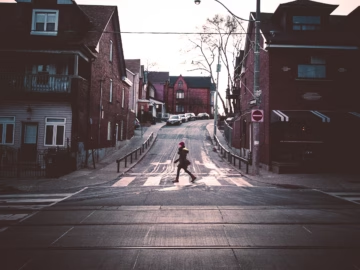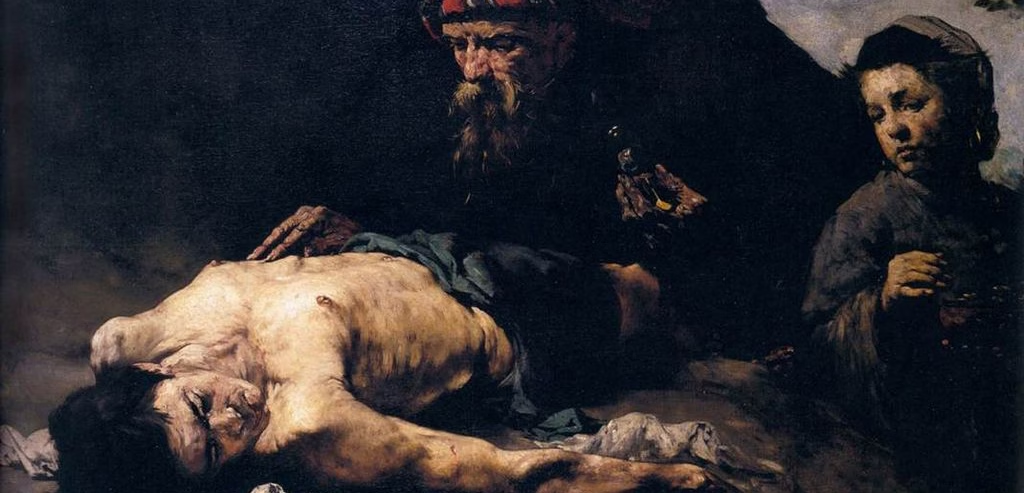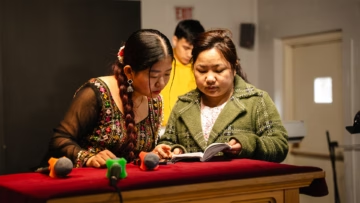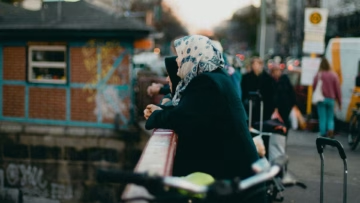
I have told this story to a few people and have often received responses like, “You have got to be joking … that sounds just like the parable of the Good Samaritan.”
Unfortunately, I assume there has often been a bit of skepticism in those persons’ responses, thinking I may have fabricated this story. I can assure you that this story is not a fabrication or an embellishment — it was a real-life encounter with a man with a heart of gold.
It was winter, in the early 2000s. It was cold. It was also snowing.
My father and I were getting ready to drive to the store in our less-than-reliable 1980-something Chevy Celebrity. The car’s alternator was having some issues, and the engine would not stay running.
We had not traveled very far down the main street in my hometown when the car was not able to make it.
Whatever the issue ended up being, I remembered that we needed someone to help us jump the car’s battery. My father struggled with a form of anxiety that could render him into a significant panic from situations like this one — this one did just that.
I was too young to be of much help, other than walking to someone’s house to ask for help. We did not have a cell phone, and we did not necessarily know what to do.
Suddenly, walking down the street we saw our pastor. We asked for his help, but he said he was running late for a meeting and could not help.
It was disappointing, but we moved on.
Next we saw a neighbor, who happened to be a Sunday school teacher. We asked if he could jump the car. And he responded quickly by indicating that his car’s battery was probably too unreliable to be able to help us. My father tried to explain that this man’s car would be fine, but he continued to find excuses.
We were left to figure out how to solve this problem on our own.
Then an old panel van came driving up alongside our car. The driver rolled down his window and asked if we needed help.
We quickly realized that it was our neighbor … our Muslim neighbor. He pulled onto the side of the road, rummaged for a pair of jumper cables, and quickly helped us get back on the road.
It was such a simple gesture, but it was a meaningful one — one that my family still talks about fondly today.
This man and his wife owned a little gift shop down the street from our house. We were patrons of their business for a long time and found joy in their friendship. Unfortunately, this man passed away a few years later. My parents often encouraged me to shovel their sidewalk while he was sick and after he passed away.
I share this story not to chastise the two Christian men who did not help us, but rather to highlight the kindness of the man who did. This neighbor was willing to openly talk with us about faith and the differences between Christianity and Islam. While we differed in our religious views, we had mutual respect for each other.
Most of my posts look at a historical idea related to missiology. However, as I was thinking about the topic of how Christians engage with Muslims, I could not seem to find a better avenue to explore than this scenario from my own life.
There is a lot of fear, mistrust, and hatred circling through our country. Growing more fearful, less trusting, and more hateful will not accomplish anything. The truth is that most Muslims are just like my neighbor — kind, compassionate, and peace-loving people. Unfortunately, so many Americans have not had the experience to develop friendships with Muslims, and so they are quick to fear people based simply on assumptions.
It is true that Islamic extremism is a very dangerous and frightening reality — but so is Christian white supremacy. We cannot hold Islamic terrorists as the ideal of what it means to be a Muslim, just like we should not hold Christian terrorists as the ideal of what it means to be a Christian.
Christians have an opportunity to either learn from our Muslim neighbors or completely isolate ourselves from them. Isolation was not an option for Jesus — he embraced the Samaritans — people who I think are a fitting parallel to Muslims today.
Being part of the Kingdom of God means not isolating ourselves from certain people because of their religion or race. I am reminded of the words of Donald Kraybill in regard to how the Kingdom of God breaks down barricades:
The spirit of Jesus penetrates social boxes. Barricades of suspicion, mistrust, stigma, and hate crumble in his presence. He also invites us to see human beings behind the labels of stigma. His kingdom transcends all boundaries. He welcomes people from all boxes. God’s love overpowers the social customs which divide, separate, and isolate. All are invited to the table in the new kingdom. None are pushed aside or excluded. Jesus’ broad welcome lies at the heart of the gospel. Reconciliation forms its core. This good news melts spiritual barriers between humans and God and dismantles walls between people. The agape of Jesus reaches out to boxed up people, tells them of God’s love washes away their stigma, and welcomes them into a new community.1
As I reflect on the kindness of my neighbor, my heart is warmed. Simultaneously, as I imagine the struggles of every Muslim living in America, my heart is broken. As the Church, I encourage you to think beyond what you know and learn about what you do not know. I am not talking about reading another news article — I am calling you to befriend a Muslim neighbor, co-worker, salesperson, etc.
Friendship can break down barriers and change lives.
Notes
- Donald B. Kraybill, Upside-down Kingdom (Herald Press, 2003), p. 212. ↩︎
Adapted from “My Good Samaritan Was a Muslim,” a post for Micah’s blog, Beyond Perimeters.



